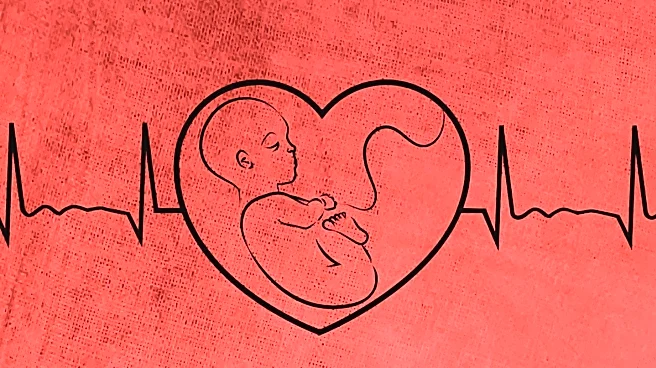What's Happening?
Swedish researchers have discovered that nearly one-third of adults suffering from severe long COVID exhibit symptoms of postural orthostatic tachycardia syndrome (POTS), a rare heart-rhythm disorder. This condition, which causes a rapid heartbeat upon standing, was found to affect primarily middle-aged women. The study, conducted by Karolinska Institutet, involved 467 nonhospitalized patients who had taken sick leave due to persistent COVID-19 symptoms. Participants underwent various physical tests, including electrocardiography and tilt testing, to diagnose POTS. The research revealed that 31% of long COVID patients were diagnosed with POTS, while 27% did not meet the criteria, and 42% showed no clinical signs. The study highlights the prevalence of POTS among long COVID sufferers, contrasting with its occurrence in less than 1% of the general Swedish population before the pandemic.
Why It's Important?
The identification of POTS in long COVID patients is significant as it sheds light on the lingering effects of COVID-19 and the potential for chronic health issues. This discovery is crucial for healthcare providers and policymakers as they develop strategies to manage long COVID symptoms and support affected individuals. The predominance of POTS among women suggests a need for gender-specific research and treatment approaches. Understanding the prevalence and impact of POTS can lead to better diagnostic tools and therapeutic interventions, potentially improving the quality of life for those affected. Additionally, this research may influence public health policies and resource allocation for long COVID treatment and rehabilitation programs.
What's Next?
The research team plans to conduct follow-up studies over the next four to five years to monitor recovery trajectories and functional levels of POTS patients and COVID-19 survivors. These studies aim to provide deeper insights into the long-term effects of COVID-19 and the progression of POTS. The findings may prompt further investigation into the mechanisms underlying POTS and its association with COVID-19, potentially leading to new treatment options. Healthcare systems may need to adapt to accommodate the growing number of long COVID patients, emphasizing the importance of continued research and collaboration among medical professionals.










